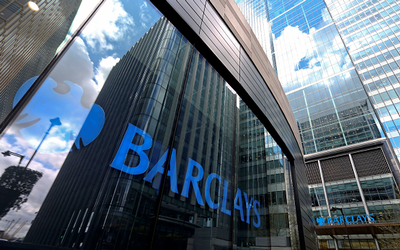A TIGHTENING regulatory noose may have been the unseen hand behind Barclays’s proposed selldown of its 62.3% stake in Barclays Africa, while Old Mutual faces a minefield of rules to deal with a new European Union (EU) law.
Barclays CEO Jes Staley said as much on announcing the selldown of its stake in Barclays Africa last week. He said the UK bank levy, the global systemically important bank buffer, and total loss-absorbing capital, among other strict regulations, had spurred its decision to consider downsizing.
However, profitability, to the chagrin of analysts, has nothing to do with the mooted move, as Barclays Africa generated a 17% return on tangible equity in the year to December, ahead of Barclays’s personal and corporate bank, which brought in 12.1%.
Barclays Africa, operating in 12 jurisdictions, whose main cash cow is the South African retail and business banking unit, outperformed the investment bank, which generated a lacklustre 5.6%.
Only Barclaycard performed better at 17.7%.
"That 17% or 18% return on equity that you see in Barclays Africa locally, by the time you get through bank levies and buffers … and all those issues, that 17% or 18% is cut back to a single digit return on our investment in Africa," Mr Staley said in a call with analysts last week.
Barclays has been designated one of 30 global systematically important banks essentially too big to fail and which were compelled to raise a collective $1.19-trillion by 2022 in loss-absorbing capital to cover risky assets and avoid taxpayer bailouts.
With Old Mutual, the Solvency II regulatory regime that came into effect in January may have prompted the strategic review that could see the £9.6bn conglomerate breaking up into standalone companies to derisk its balance sheet.
"As we saw with Barclays, the regulatory tide and investor sentiment have turned against European companies with controlling stakes in foreign banks and insurers," says 360ne Asset Management’s Nico Smuts.
And, as Barclays has shown, profitability would not necessarily be a factor. Of Old Mutual’s four core business units, SA-based Nedbank and Old Mutual Emerging Markets made the highest contributions to its adjusted operating profit, at 44.1% and 35.4%, respectively.
Mr Smuts says investors had lost their enthusiasm for African expansion, "which is understandable, given the current economic challenges faced by oil-exporting countries in particular". "However, the long-term investment case for the continent remains compelling."
The new EU regulatory regime now requires insurers such as Old Mutual to hold capital against market risk, such as a drop in the value of its investments; credit risk, including when third parties cannot repay their debts; and operational risk, such as malpractice.
And market and credit risk in SA loom large. At Nedbank, it faces a cut to subinvestment grade in the bank’s credit rating — which, along with rivals Barclays Africa, Standard Bank and FirstRand — tends to follow that of the country’s credit rating.
Fitch Ratings downgraded three of these banks’ ratings to one notch above junk in December, a week after it downgraded SA’s rating. Barclays Africa’s foreign currency rating fell two places to two notches above junk status, thanks to support from parent Barclays.
Now that Barclays is selling down its stake in the group, Fitch has downgraded Barclays Africa to a notch above junk, in line with the other banks.
Outgoing Standard Bank financial director Simon Ridley says the probability of SA’s debt being cut to subinvestment grade was about 30%. "We also believe that the current interaction between business and government to promote a stable, growth-friendly environment will reduce this risk."
But if rating agencies cut SA’s credit rating, banks’ profitability would depend on the rand’s potential weakness and the Reserve Bank’s response.
Whether these developments indicate the end of the Africa Rising narrative is debatable.
"The long-term African growth story is still intact, but the current macro conditions are tough for oil-producing West African countries," says PSG Wealth analyst Adrian Cloete.






















Change: 1.19%
Change: 1.36%
Change: 2.19%
Change: 1.49%
Change: -0.77%
Data supplied by Profile Data
Change: -0.08%
Change: 0.12%
Change: 1.19%
Change: 0.00%
Change: 0.10%
Data supplied by Profile Data
Change: 0.32%
Change: 0.36%
Change: 0.35%
Change: 0.22%
Change: 0.23%
Data supplied by Profile Data
Change: 0.02%
Change: -0.51%
Change: -0.19%
Change: -0.17%
Change: -0.15%
Data supplied by Profile Data